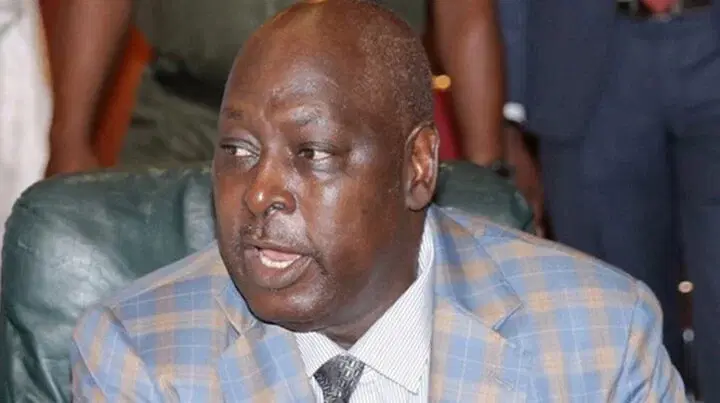Former Secretary to the Government of the Federation Babachir Lawal has strongly backed Senator Rabiu Kwankwaso’s criticism of President Bola Tinubu’s administration, accusing it of deliberately neglecting infrastructure development in northern Nigeria.
Speaking on Trust TV’s Sunday Politics program, Lawal claimed there are no visible federal projects underway in the region.
“Every Nigerian that has anything to do with the north will know that no infrastructure work is going on at any level,” he stated bluntly.
“No projects are going on—at least they are not visible to the eye. Maybe in their imagination, maybe in the spirit—but we don’t see it. We don’t see any construction work. We don’t see any infrastructure going on. No federal government project whatsoever,” Lawal emphasized.
The former SGF highlighted his and Kwankwaso’s technical backgrounds as giving them special insight into physical development matters. “Kwankwaso, remember, is an engineer too—so he, like me, like David Umahi, who’s an engineer too, the way we see things — physical things—the way we see them differently,” he explained.
Lawal didn’t mince words about the administration’s perceived hostility toward the north: “I believe the sense we get as northerners is that if this government can destroy what they inherited, they’ll willingly do it. That’s the sense we have from this government.”
He predicted electoral consequences for the ruling party in the region: “Which elected official, a northerner, will go into the campaign on the platform of the APC in this coming election? Nobody. Except, ab initio, you have no plan to win the election. Unless they join ADC, they will not win—simply because they belong to the destructive party.”
In a sharp rebuttal, Works Minister David Umahi dismissed Kwankwaso’s original claims as “misleading and unfair to the president.” Umahi revealed that 52% of Tinubu’s key road projects are located in the north, including 756 kilometers of the Sokoto-Badagry superhighway.
Presidential aide Sunday Dare supported Umahi’s position, listing over 40 ongoing or maintained projects across northern states and suggesting the criticism was politically motivated. The exchange highlights growing tensions between northern leaders and the federal government over regional development priorities ahead of future elections.
